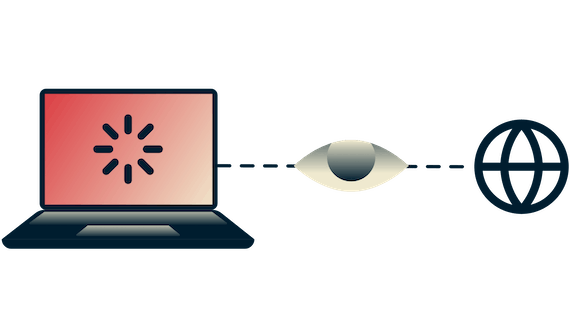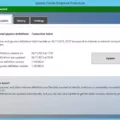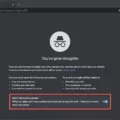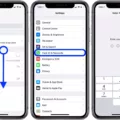Do you ever notice a significant drop in your internet speed when you’re streaming a movie or downloading large files? If so, your internet service provider (ISP) could be throttling your connection. ISP throttling can have a major impact on your online experience, so it’s important to know what it is and how to prevent it.
What is ISP Throttling?
ISP throttling is the practice of slowing down an individual user’s internet connection speeds. It’s also known as bandwidth throttling or data throttling. Generally, ISPs will throttle users when they exceed a certain amount of bandwidth usage within a given period of time. This can happen even if you have an unlimited data plan, so be sure to read the fine print in your contract.
Why Do ISPs Throttle Connections?
ISPs throttle connections for two main reasons:
1) To reduce overall network congestion: ISPs are under pressure from content providers like Netflix and Hulu to provide high-speed connections for their customers. By throttling certain users, ISPs can ensure that everyone has access to the same speeds at all times.
2) To increase profits: Some ISPs will throttle certain users in order to make more money by encouraging them to upgrade their plans or purchase additional services. This practice is illegal in some states, so be sure to research the laws in your area before signing up with an ISP.
How Can You Tell if Your Connection is Being Throttled?
The most common signs of ISP throttling include slow download speeds, buffering of videos, and lagging Wi-Fi connections. If you experience any of these issues, it may be due to an intentional slowdown from your ISP. To test if this is true, try running a speed test before and after connecting to a VPN server – if the results are significantly different then it’s likely that you are being throttled by your ISP.
How Can You Stop ISP Throttling?
The best way to stop ISP throttling is by using a virtual private network (VPN). A VPN encrypts all of the data sent through your connection and hides it from your ISP – making it impossible for them to see what you’re doing online or slow down certain activities like streaming video or downloading large files. Most VPN services offer easy-to-use apps that make setting up and using the service simple – just download one onto your device, create an account, and connect to one of their servers before enjoying fast and secure internet without any more lag or slowdowns due to throttling!

Identifying If Your ISP Is Throttling You
If you suspect your ISP is throttling your internet connection, there are a few signs you should look for. First, see if certain websites or services are slower than others. If you notice that your download speeds have slowed or that videos are buffering or lagging, thee are all signs of throttling. Additionally, if your internet speeds are generally slower than usual or if your Wi-Fi connection is choppy or broken, this could also be a sign of throttling. If you think that your ISP is limiting the speed of your internet connection, contact them to discuss the issue and find out if they are indeed responsible for the slowdown.
Stopping Internet Service Provider (ISP) Throttling
The best way to stop your Internet Service Provider (ISP) from throttling your connection is to use a Virtual Private Network (VPN). A VPN is an encrypted tunnel that routes your data traffic through secure servers, allowing you to access the internet anonymously and securely. When you connect to a VPN, your ISP can’t see what websites or services you are accessing, so they are unable to throttle or limit the speed of your connection.
To get started, download a reputable VPN app such as NordVPN or ExpressVPN. Once the app is installed on your device, create an account and sign in. Then select a server location of your choice and connect. With the VPN active, you can now enjoy unrestricted access to the internet with no more lag or throttling from your ISP.
How Can a VPN Help Prevent ISP Throttling?
Yes, a VPN can stop ISP throttling. A Virtual Private Network (VPN) encrypts your data and creates a secure, private connection between your device and the internet. This means that your ISP cannot see the content you are viewing, so it cannot throttle your internet connection based on what you are doing. By using a VPN, you can ensure that your internet connection is not slowed down by your ISP. Additionally, a VPN can also provide added security and privacy benefits, such as protecting you from hackers or preventing websites from tracking you online.
Can I Sue My Internet Service Provider for Data Throttling?
Yes, you may be able to sue your ISP for throttling services. Throttling is the practice of slowing down or restricting the internet speed of certain websites or data streams. It is considered a breach of contract if an ISP has promised a certain level of service, but fails to deliver on that promise. You can file a lawsuit against your ISP for throttling services if you believe that they are not providing the level of service that was promised in the contract, or if they are purposely slowing down your connection to certain websites, applications, or streaming services. A successful lawsuit could result in the ISP being ordered to pay damages and/or to stop their practice of throttling services.
Bypassing ISP Throttling Without Using a VPN
Bypassing ISP throttling without a VPN is possible, but it requires the use of an encrypted web proxy. An encrypted web proxy conceals your web browser’s traffic and spoofs your online location so that your ISP can’t monitor or throttle your connection. To use an encrypted web proxy, simply input the URL of the website you wish to visit into the proxy’s search bar. The proxy will then encrypt your data before sending it to the website, allowing you to browse the internet without being monitored by your ISP. It is important to note that using a web proxy does not provide as much security as using a VPN; however, it can still be effective in bypassing ISP throttling.
Conclusion
In conclusion, ISP throttling is a real problem that can have a major impact on our ability to enjoy the internet and all of its services. Fortunately, it is possible to stop ISP throttling by downloading and using a VPN. By encrypting all of your online activity, VPNs hide it from your ISP so they can no longer throttle your connection. With a secure connection, you can access all of your favorite online services without any lag or buffering. Ultimately, using a VPN is the best way to ensure that you get the most out of your internet experience and avoid any potential throttling issues.








